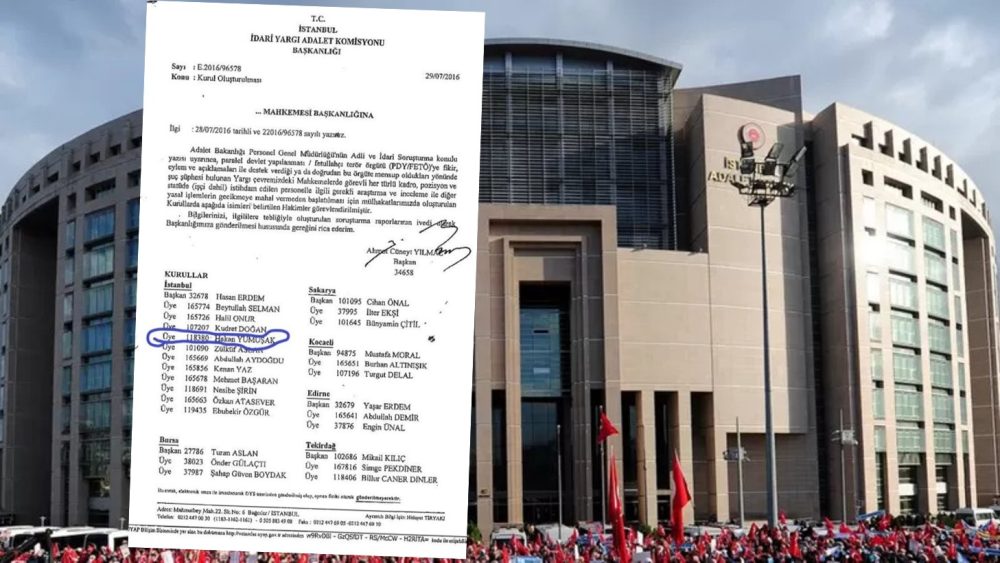An official document shared on Twitter by a former prosecutor showed how the Turkish Justice Ministry formed committees to identify employees with links to the faith-based Gülen movement in the aftermath of a coup attempt in July 2016.
According to the document, which was signed by the chairman of the Justice Commission for Administrative Courts, upon the instructions of the Justice Ministry a committee was formed in every city to conduct investigations into all ministry employees who were suspected of any links to the Gülen movement.
Justice Commissions are administrative units in charge of personnel issues of low-level Justice Ministry staff including court clerks, prison guards and other support personnel.
In the aftermath of the coup attempt on July 15, 2016, the Turkish government declared a state of emergency and carried out a massive purge of state institutions under the pretext of an anti-coup fight. More than 130,000 public servants, including 4,156 judges and prosecutors, as well as 29,444 members of the armed forces were summarily removed from their jobs for alleged membership in or relationships with “terrorist organizations” by emergency decree-laws subject to neither judicial nor parliamentary scrutiny.
The individuals whose names appeared on lists prepared by the ministries and other public institutions were relieved of their duties.
Turkey’s Justice and Development Party (AKP) government launched a war against the Gülen movement, a worldwide civic initiative inspired by the ideas of Muslim cleric Fethullah Gülen, after the corruption investigations of December 17-25, 2013 that implicated then-prime minister and current President Recep Tayyip Erdoğan’s family members and inner circle.
Dismissing the investigations as a Gülenist coup and conspiracy against his government, Erdoğan designated the movement as a terrorist organization and began to target its members. He intensified the crackdown on the movement following the coup attempt on July 15, 2016 that he accused Gülen of masterminding. Gülen and the movement strongly deny involvement in the abortive putsch or any terrorist activity.
Former public servants were not only fired from their jobs; they were also banned from working again in the public sector and getting a passport. The government also made it difficult for them to work formally in the private sector. Notes were put on the social security database about dismissed public servants to deter potential employers.
The Turkish government accepted such daily activities as having an account at or depositing money in a Gülen movement-affiliated bank, working at any institution linked to the movement or subscribing to certain newspapers and magazines as benchmarks for identifying and arresting tens of thousands alleged members of the movement on charges of membership in a terrorist organization.
***Show us some LOVE by sharing it!***



